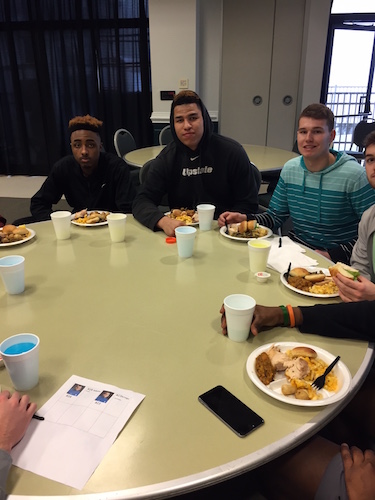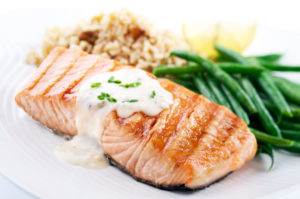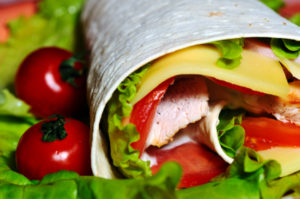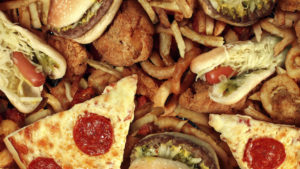
14 Dec Athlete Nutrition – Critical for Success…A Challenge to Control
As Head Trainer my, and my staff’s, job is to make certain our athletes are in the best physical condition possible at all times throughout the training and competition calendar. We are well skilled in strength and conditioning, we have the best facilities and equipment and we support our team coaches in every way possible to enhance skill set improvement and execution during competition. As part of those responsibilities we must also manage athlete nutrition, perhaps the most important element of game day performance, given all of the other elements are built in over time.
 In this regard, the “lack of resources” I have found at a smaller school, additionally, is a bit of a challenge at times, requiring us to be creative with the resources available to us. We are faced with a large number of student athletes that are unprepared to make nutritional choices rangi
In this regard, the “lack of resources” I have found at a smaller school, additionally, is a bit of a challenge at times, requiring us to be creative with the resources available to us. We are faced with a large number of student athletes that are unprepared to make nutritional choices rangi
ng from those that feel that all fast food is good food – “McDonald’s is the greatest restaurant in the world because I always know exactly what my food will taste like”- to the “lack of time’ needed to prepare a quality meal compared with a quick trip to “the Circle” (we have 8 fast food choices less than a mile from campus) to get a meal.
Some schools are fortunate enough to have Registered Dietician’s (RD) on staff or a Dietetics department on campus to serve as a resource for student athletes and staff alike, working together with dining hall/training table staff to provide their athletes with sound nutritional choices and informational resources to tackle specific issues that may arise. I work at a school that has neither an RD nor Dietetics program so our challenge takes a different tact to accomplish the common goal of getting athletes the information and tools to make good nutritional choices.
Our belief is that good nutrition through a diet properly designed and balanced for athletes is the foundation for building strength and energy provision. Unfortunately, we are not always in a position to control what our athletes eat and drink, and given the extraordinary work our athletes do in training and competition we know that “targeted supplementation,” in addition t o a proper nutrition base, is both necessary and very effective in achieving the desired results. Our Strength & Conditioning and Athletic Training personnel are consistent in the message that poor eating is of little to no value to an athlete trying to compete at their highest level. Getting our athletes to embrace a balanced nutritional plan is a challenge that involves time, finances and baseline knowledge.
o a proper nutrition base, is both necessary and very effective in achieving the desired results. Our Strength & Conditioning and Athletic Training personnel are consistent in the message that poor eating is of little to no value to an athlete trying to compete at their highest level. Getting our athletes to embrace a balanced nutritional plan is a challenge that involves time, finances and baseline knowledge.
Our Dining Services are provided by Sodexho, who does have a Registered Dietician that visits our campus (approximately once per term). Her visit on campus gives us the opportunity to have a presentation from her that is specific to athletes with regard to some nutritional aspect of training and competing.
We try to breakdown the concept of nutrition into its simplest form, and liken the 4 food groups to the needs of an automobile… gas in the tank, oil in the crankcase, water in the radiator, and air in the tires. The 4 food groups are all needed in the same manner as the above to make the vehicle/body work…
We face many challenges in many areas. There are occasions on r oad trips that we purchase fruit for our athletes to have in their hotel rooms. Imagine my surprise when I had athletes tell me that they have never eaten a pear or raspberries before. I find myself reminded that nothing is to be taken for granted and that everything can be an educational opportunity.
oad trips that we purchase fruit for our athletes to have in their hotel rooms. Imagine my surprise when I had athletes tell me that they have never eaten a pear or raspberries before. I find myself reminded that nothing is to be taken for granted and that everything can be an educational opportunity.
Many sources of good nutrition information can be accessed and we, periodically, send out recipes to our students, items we cull from various resources (such as Taste of Home, Cooking Light, Simple and Delicious, themagicalslowcooker.com e.g.) to provide, for the most part, 30 minute or less prep-time meals, 5 or less ingredient meals, vegetarian  alternatives, lunch options, and slow cooker meals “ready when you walk in the door”. We send out a basic needs list… what every kitchen should have in it to make your college experience better. We solicit ideas for recipes or topics from our athletes to try and make it as useful as possible.
alternatives, lunch options, and slow cooker meals “ready when you walk in the door”. We send out a basic needs list… what every kitchen should have in it to make your college experience better. We solicit ideas for recipes or topics from our athletes to try and make it as useful as possible.
Those that eat thru our dining services learn how to choose options to perform and fuel. We all are available to go through the week’s menu to help map out options for daily meal planning.
It can be a slow process to change how food is perceived (there is a senior in college that compares all food to that of home and no side dish ever, which may contain an important nutrient, compares to what mom makes and much remains virtually untouched). We remain committed to providing sound educational advice to our athletes and while we “lack the resources” to provide everyone with a personal nutritionist, our students do receive information to help them in their quest to be the best that they can be.
To compensate for these challenge and variability in eating habits of our athletes, we utilize targeted supplements such as carbohydrates and electrolytes to provide the nutrients the athletes may be missing from their less regulated diets.
Every athlete is different and every sport/team has its own unique fueling needs. As a result we have learned to be observant of performance relative to eating habits of our individual athletes, learned how to subtlety influence their diets, and learned when and how to provide them supplemented nutrients when they need them.
Michael P. Sandago MA ATC SCAT
 Associate Athletic Director for Sports Medicine
Associate Athletic Director for Sports Medicine
USC Upstate








No Comments